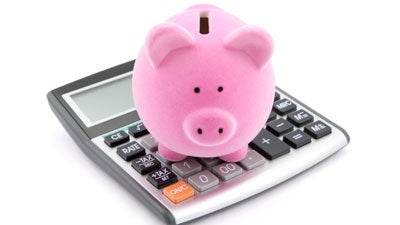
There is no denying that the best way to deal with debt is to avoid it all together. There is good debt such as a mortgage or an auto loan, which most borrowers will require in order to facilitate the purchase of a home or car. This is considered a normal and necessary expenditure in American culture.
Bad Debt
Bad debt is the kind of debt that consumers accumulate, which they really can’t afford over the long haul. This is usually done without securing a viable asset. That doesn’t mean all consumer or credit card debt is bad, it really depends on the individual’s ability to budget and manage their money. In fact, affordable consumer debt is a good thing because it allows the borrower a great deal of financial flexibility and often strengthens their credit rating. That said, people who end up in debt trouble usually have two common attributes, too much credit card debt and no idea how to implement a budget.
Related Article: Startup Budgeting for Small Business Owners and Entrepreneurs
How to Budget to Stay Debt-Free
The simplest and most efficient way to stay debt-free is through a life-long commitment to preparing budgets and the ability to abide by those budgets. A budget is nothing more than a format used to prioritize one’s expenses. The good news is that a budget is easy to prepare. It only requires an individual to be realistic about their financial situation. Here are some great tips for you to use when setting up a budget.
- Cash Only – A budget should be a “cash” budget. As you decide what expenses you plan to incur during the year, you should anticipate operating solely on a cash basis. Save the credit cards for emergencies, real emergencies.
- Plan to Live a Modest Lifestyle – It’s hard to deny oneself the good things in life, but everything has a price. The price for living an excessive lifestyle is debt. You need to live within your means. Your two biggest expenditures will most likely be housing and transportation. Your rent/mortgage should never exceed 30% of your disposable income and auto loans should not exceed 10%. Other items to view with modesty include cell phones, clothing and vacations.
- Plan to Save – Saving is a must for financial health. A nice savings account will help you provide for the future and offer you financial protection against emergencies such as loss of employment or medical issue. You should set up a separate savings or investment account and allocate a standard amount on a monthly basis to be automatically transferred into that account.
- A Little Treat Won’t Hurt – No one is suggesting you don’t deserve to be pampered every now and again, but do it the right way. Decide what you want to buy or where you want to go and save towards that goal. Impulse buying is the devil’s playground.
- Cost Cutting Measures – As part of the budgeting process, make yourself a deal. You will only buy goods on sale. There is no shame is using coupons and try buying out of season (winter clothes in the spring). You should also invest the time to find the best price on things like insurance.
- Track Your Expenditures – Your budget is not going to be effective if you neglect to compare your actual costs against the budget. Budgets should be flexible enough to allow for small adjustments throughout the year.
This article was originally published by Rescue One Financial
Published: February 13, 2015
4833 Views
4833 Views












